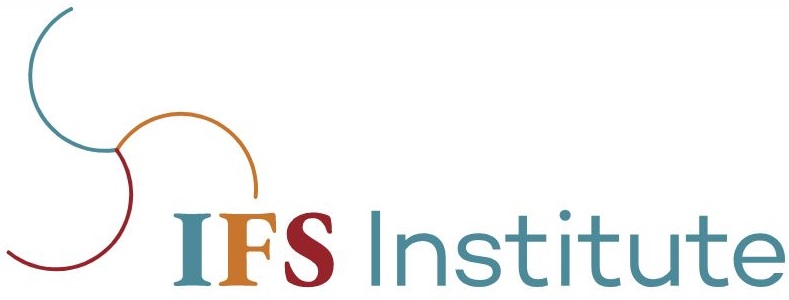Our Approach
Counseling & Recovery Partners Approach
There are many approaches to psychotherapy and all have merits and benefits. Our approach is eclectic but generally is based on Attachment Theory.
In middle school we often shift from our parent(s) to friends or siblings as our attachment figure. Later in life it becomes a romantic interest and eventually, for most of us, our significant other or spouse.
When we have Secure attachment we learn that our wants, needs and desires are valid and those of other people are also valid. Unfortunately, only about 50% of the population enters adulthood with secure attachment.
When our attachment style is insecure, we have trouble trusting other people or ourselves. This may end up in relationship problems, isolation, self-doubt, anxiety, depression, addiction, lack of trust or many other interpersonal and interpersonal struggles.
Our therapists operate on the idea that Earned Secure Attachment is possible, and we help our clients who are insecurely attached learn new skills and approaches to life so that secure attachment is possible and the attachment wounds form a lifetime of insecure attachment can be healed.
Individual Counseling
As a client of Counseling & Recovery Partners you can expect individual counseling sessions to be confidential, focused and tailored to your needs.
Our therapists pride themselves on being respectful, honest and straightforward. You may not always like what you hear, but you can be assured that your therapist is working for you and has your best interest in mind.
Sessions are usually 60 minutes in length but will sometimes run long or may be scheduled for 90 minutes depending on the plan you and your therapist agree to. Sessions are priced at $125 per session for individual therapy. We are not on insurance panels (other than The Veterans Administration) but we work with several insurance companies for out of network mental health benefits and we can provide paperwork for you to submit to your insurance company if we do not have a relationship with them.
Couples Counseling
Working as a Couple
As noted earlier, our therapists take an Attachment Theory approach to counseling. That holds true in individual and couples counseling.
For the couple, this means addressing the individual issues that block safe, secure attachment as well as learning new ways of communicating and new ways of thinking about your relationship.
Many couples argue over the “things” of life and miss out on the deeper issues of feeling heard, feeling understood, trusting and feeling known by your significant other. When we have these present in the relationship, the “things” of life are small and the safety and security we feel in the relationship help us to work through the small things with understanding and patience.
This is the goal of couples therapy – safety and security in the relationship – and the way we practice it at Counseling & Recovery Partners has proven successful for many couples.
Couples Group Counseling
The discovery of sexual addiction can leave a couple feeling hopeless and confused about the future of their relationship. We often see couples in early recovery do certain things that can make healing more complicated and painful than it already is.
A group for couples who have recently discovered that someone in the relationship is sexually addicted can address common hurdles that are often present early on.
Our group for couples in early recovery is a short-term group that covers the following topics:
- The potential risks of disclosing what has happened to others (family, friends, co-workers, etc.)
- Considerations for talking to children (young or adult children) about what is going on
- Communicating in ways that can limit additional distress
- What to expect in recovery
- Finding support including group therapy and 12 step groups
- Individual counseling vs. couples counseling
- Settings boundaries for emotional and physical safety (including sexual boundaries)
- Is there hope for our relationship?
- Healthy ways of approaching disclosure of acting out behaviors
Group Counseling
People who have worked through addiction and trauma consistently report that group therapy, along with individual therapy, are the two key elements of their recovery process.
Many people who struggle with addiction or recovering from trauma are afraid to go to a group or feel that their situation is different from others and “sitting around whining about it won’t help.”
On the contrary, taking the first step to attend a group can be the most important part of recovery. Whether you’re struggling with addiction or the impact of trauma, joining a therapist-led group and sharing your story with caring, compassionate others is often the most shame-reducing, positive step in taking back control of your life and your self.
Unlike individual therapy, group therapy allows you to give and receive feedback from others, feel compassion and receive grace, engage with others in a safe environment and experience new found acceptance and freedom – often for the first time in a long time or maybe ever.
Aligning with other people who have a similar story and life experience is validating and in many ways empowering. The group therapy experience is one that clients consistently report strengthened them and helped them get on the path to recovery.
Sexual Addiction Recovery Group
Group therapy is a critical part of treatment planning.
At least that’s what people in 3-5 years of recovery report. For addicts and partners alike, the group experience is therapeutic and healing, in and of itself. You might think the last thing you want to do is talk about your addiction or your struggles with your partner’s addiction in a group setting, but that is often the most helpful and important part of your road to recovery.
A critical component of overcoming sex addiction is to work through your addiction with others battling the same or similar things. In this 20-week group you’ll work on the first 7 tasks of recovery including: breaking through denial, understanding addiction, learning a process, limiting the pain to others, establishing sobriety, ensuring your physical integrity, and participating in a culture of support.
If you feel shame about your addiction, your actions, or towards yourself, a group experience is a critical part of reducing shame and moving forward in your recovery. It is paradoxical – when you talk about the thing that brings you shame in a safe and supported environment, the shame begins to fade.
Ask individuals who have been in successful recovery for more than a year, and they will likely tell you that one of the most important things they learned was that developing a community of support has been vital in successfully maintaining sobriety. And not just any support, but the kind of support that involves accountability and challenging, without shame and judgement.
You may have had times when you tried to stop your behaviors on your own, only to return to them despite the pain and consequences. Addiction and the shame that comes with it thrives in isolation. Having trusted people who you can honestly tell your story to is the antidote.
Addiction support groups at Counseling & Recovery Partners are lead by a therapist and typically consist of 6-8 same gender individuals who are experiencing problems with compulsive sexual behaviors. Weekly group meetings consist of group members reporting on their sobriety; triggers and challenges; and most importantly, their successes. In addition, information is presented on a number of topics including addiction, communication, developing intimacy and empathy in relationships, and being responsible for living a balanced life with healthy coping behaviors.
Betrayal Trauma Group
When someone is injured, it is a natural instinct to seek out others for safety and healing. Seeking out that support may be difficult for partners of sex addicts due to the real or perceived shame from those you typically ask for help.
Often, a partner’s self-worth is damaged and they wonder what is wrong with them, asking questions such as “Am I not good enough for him/her?” and “How could I not see that something was going on.”
You may be feeling very alone – like there’s no one you can talk to who will understand your situation. At least no one who will listen without shaming, blaming, fixing or giving you advice. A group experience for the partner of an addict is a great place to feel safe and talk about what you’re experiencing with a therapist and other women who “get it.” Often times friends, your sister(s), or your mom are the people closest to you and those who you think you can trust with this issue. Unfortunately, you only find out if you can trust them after you’ve shared your story – and sometimes it’s then too late.
Our partner group is the place to get resources, talk to people who understand, learn about your partner’s addiction and learn how to work through the intense emotions your experiencing.
No one understands the reality of the emotions you are going through better than individuals who have experienced the trauma of discovering their partner is sexually addicted. Partners group therapy is an environment in which stories can be shared safely without shame or being blamed for a sex addict’s behaviors. At Counseling & Recovery Partners, groups typically consist of 6-8 individuals who have been through the discovery of a sexually addicted partner. In addition to sharing your story, you will also receive support and feedback on the boundaries you choose to set for emotional and physical safety in your relationships.
Partners who have gone on to experience trusting and intimate relationships have reported that the support they received in group therapy was crucial for their success in recovery. That recovery starts with sharing your story with others who understand the wounds you have experienced.





